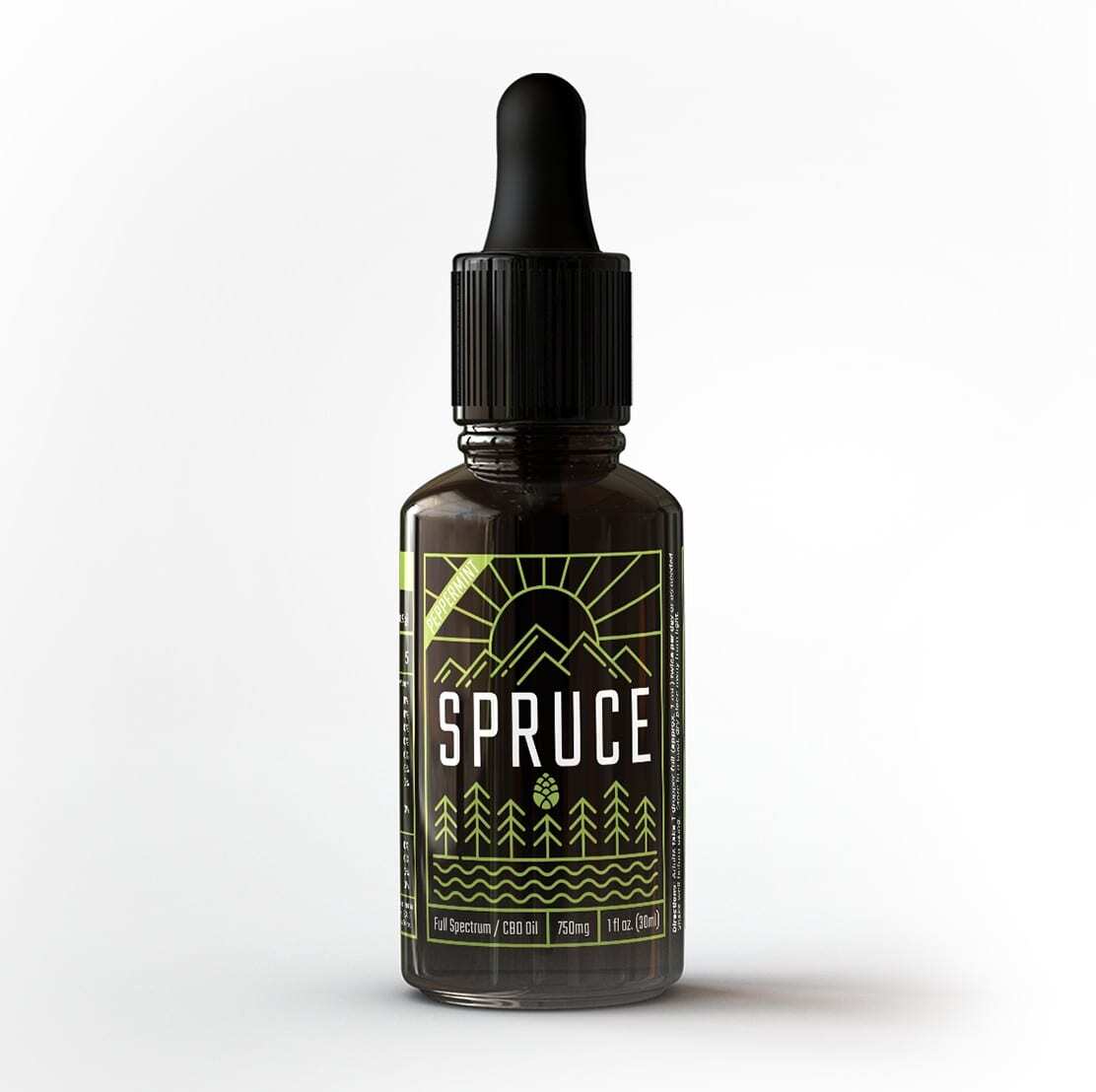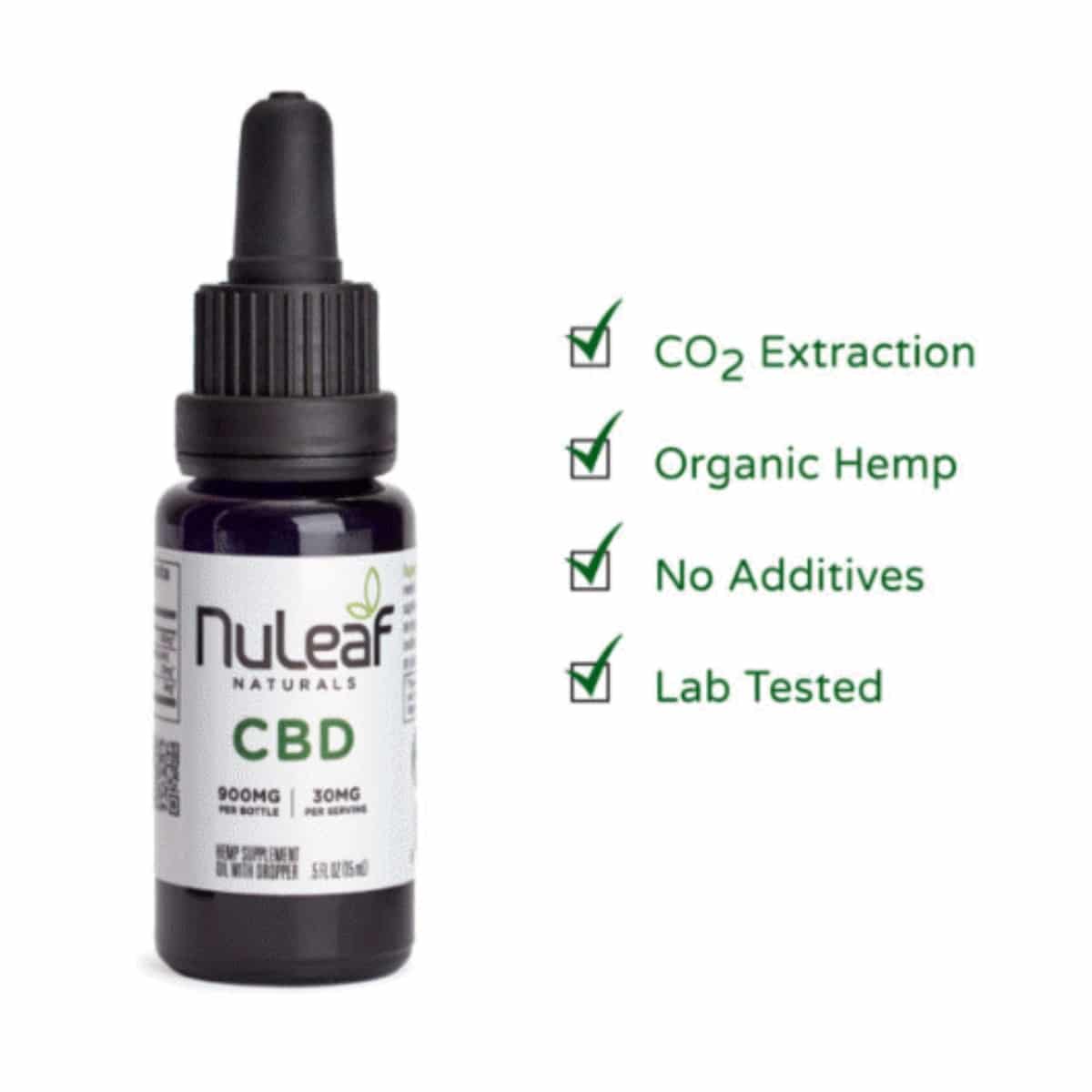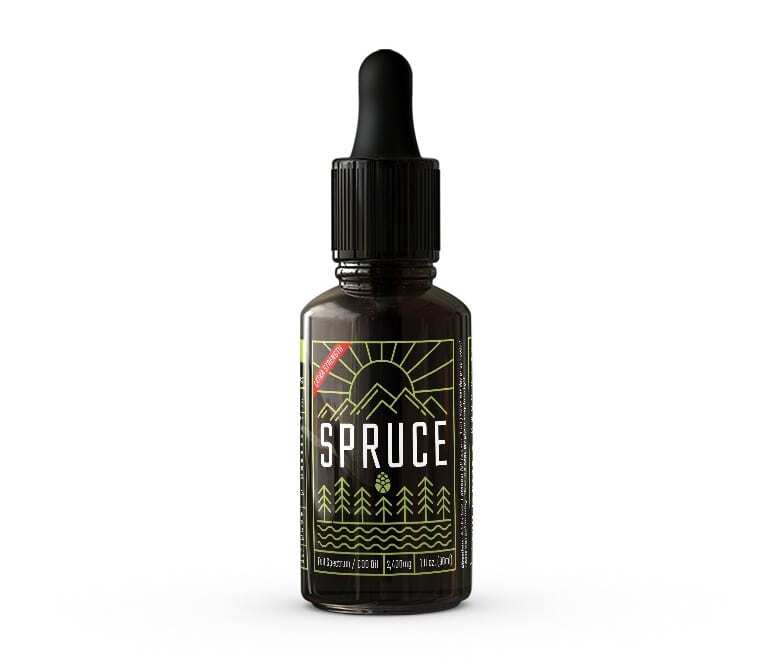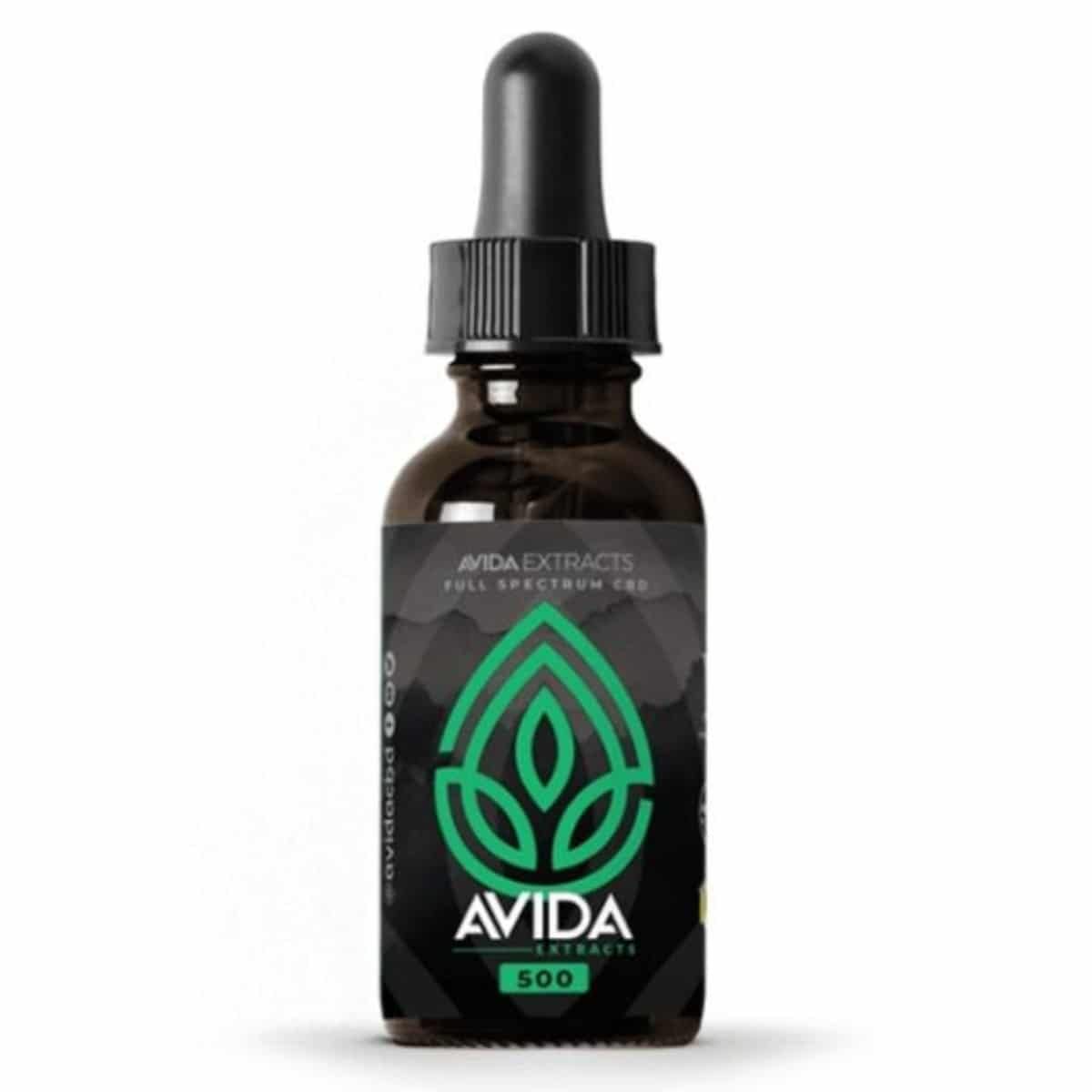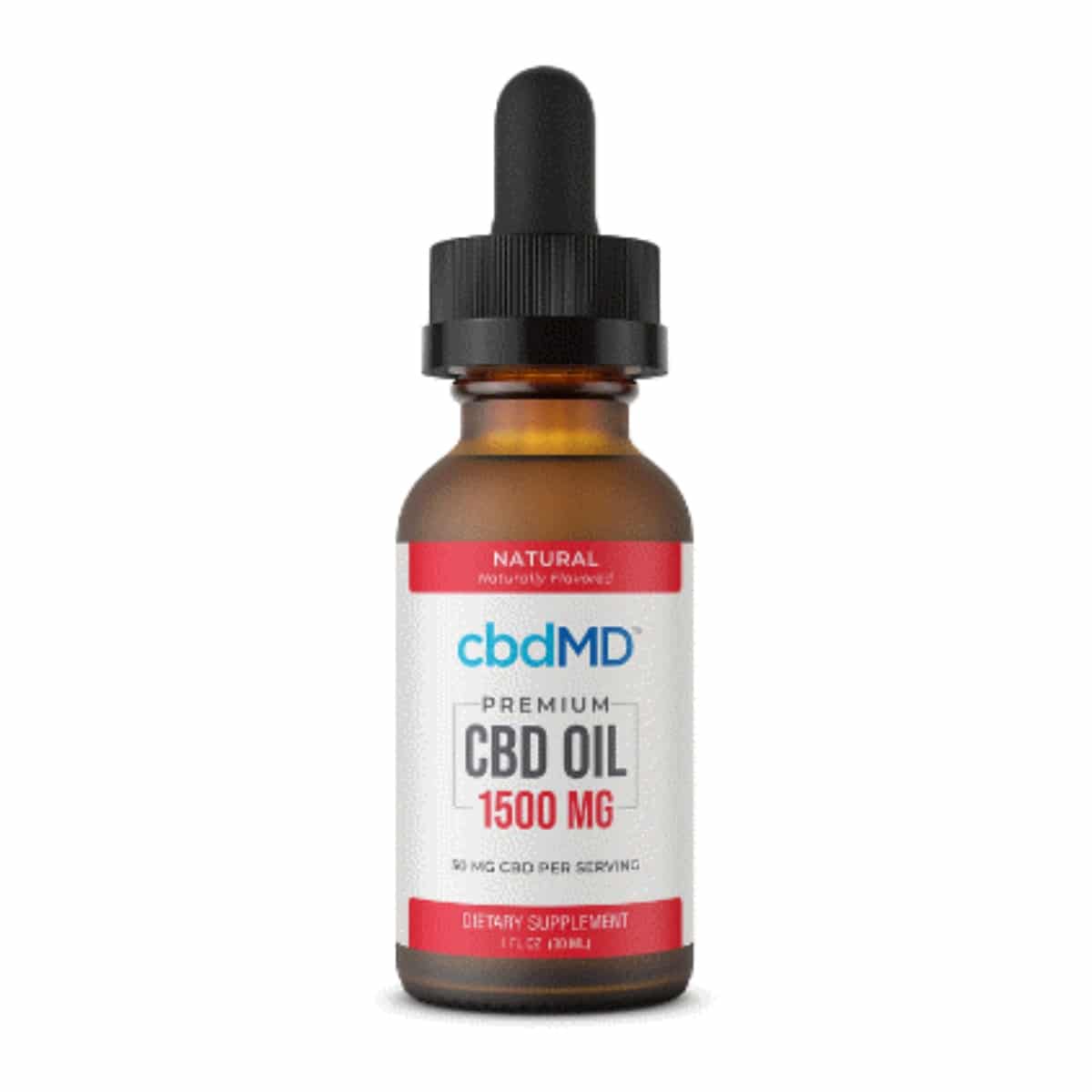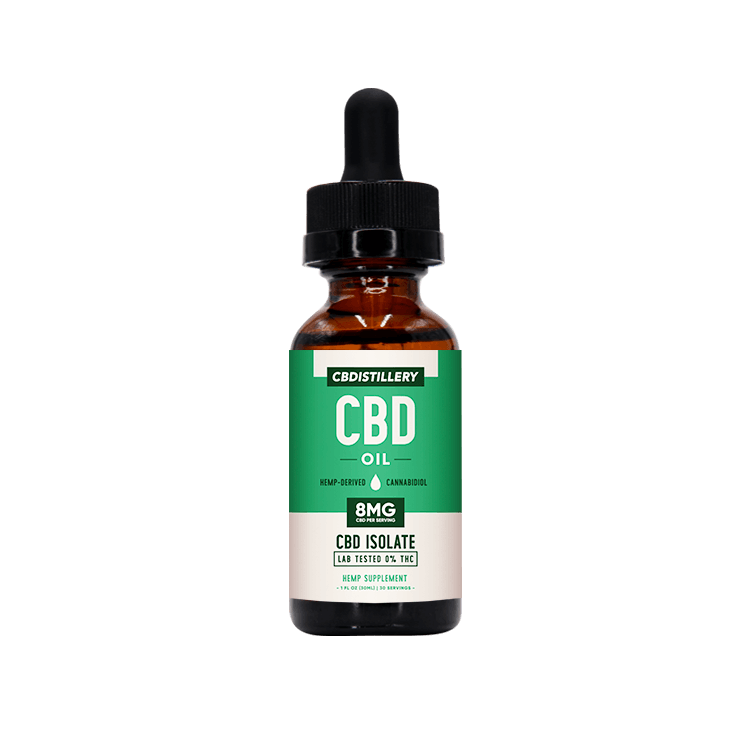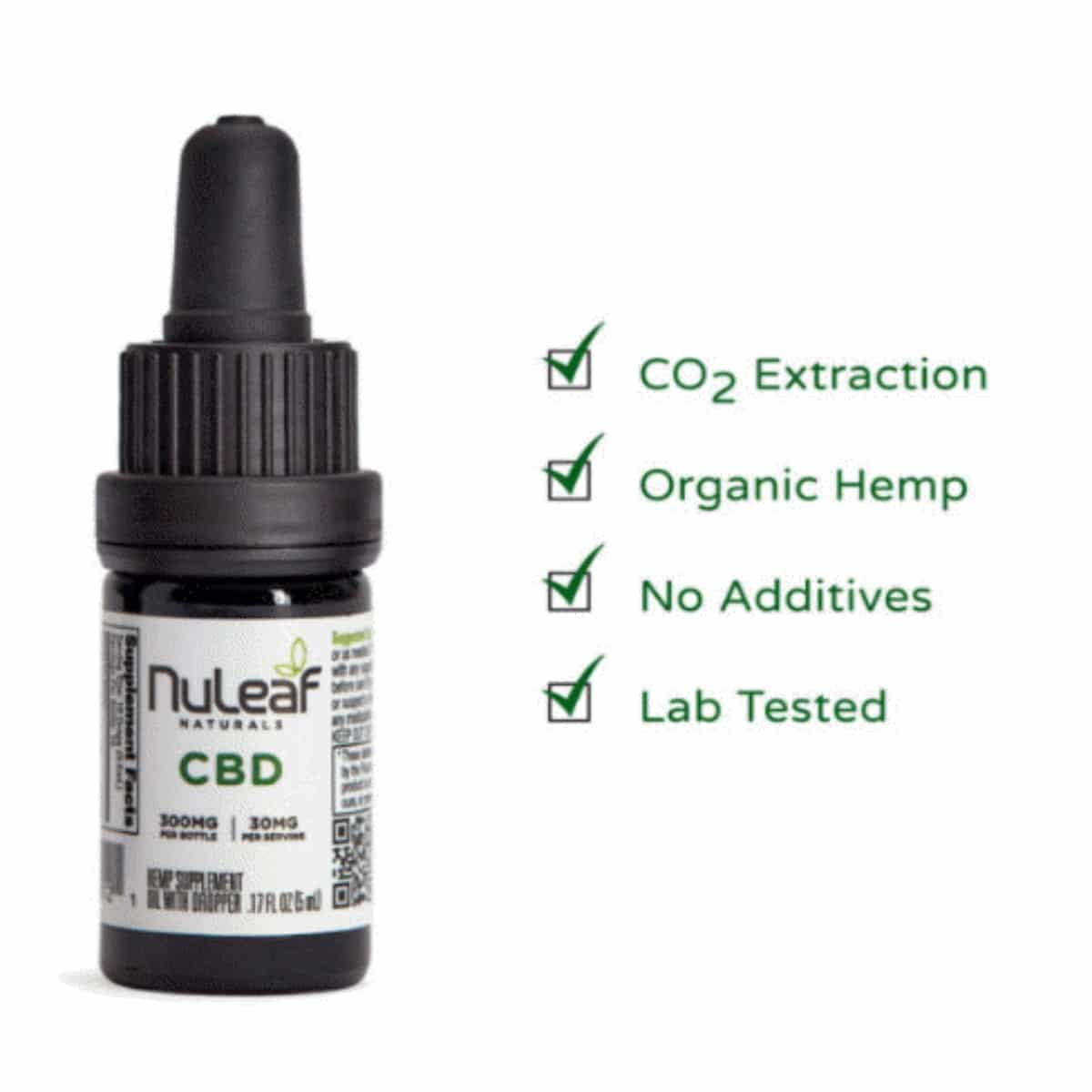Best CBD Oil for Cancer
Are you or is someone you know undergoing cancer treatments? We at CBD Clinicals have gathered the top cannabidiol (CBD) products and the best CBD oils to help you regulate your cancer symptoms and maintain overall wellness.
Best CBD Oil for Cancer 2024
- Spruce 750mg Lab Grade CBD Oil Editor's Pick
- NuLeaf Naturals 900mg Full Spectrum Hemp CBD Oil Best Organic
- Spruce 2400mg Lab Grade CBD Oil Editor's Pick
- Avida Full Spectrum CBD Oil Tincture 500mg Best Seller
- cbdMD CBD Oil Tincture Natural 1500mg Best Natural Alternative
- CBDistillery THC Free CBD Oil Tinctures Best THC-Free
- cbdMD CBD Oil Tincture Natural 750mg Best Customer Rated
- NuLeaf Naturals 300mg Full Spectrum Hemp CBD Oil Best Starter
- Hemp Bombs 750mg CBD Oil Best Flavor Range
Compare the Best CBD Oil for Cancer in 2022
Best CBD Oil for Cancer
1. Spruce 750mg Lab Grade CBD Oil
cbdc overall score
4.8
CBDC Evaluation Table/Score
| Pros | Cons |
|---|---|
| Mid-strength | No other flavors |
| Natural peppermint flavor | |
| Made from 100% organic and natural ingredients |
Overview
Each bottle of the 750mg CBD oil tincture contains 25mg of CBD per dropper full. The oil is peppermint flavor to mask any unpleasant tastes related to CBD.
2. NuLeaf Naturals 900mg Full Spectrum Hemp CBD Oil
cbdc overall score
5.0
CBDC Evaluation Table/Score
| Pros | Cons |
|---|---|
| Pure CBD hemp | No other flavors |
| All natural | |
| Approximately 300 drops total |
Overview
Natural remedy for various illnesses. NuLeaf Naturals’ CBD oil is a whole-plant extract containing a full spectrum of naturally occurring synergistic cannabinoids and terpenes.
3. Spruce 2400mg Lab Grade CBD Oil
cbdc overall score
5.0
CBDC Evaluation Table/Score
| Pros | Cons |
|---|---|
| Extra Strength | Tastes bitter |
| No artificial flavoring or colors | No THC-free option |
| Made from 100% organic and natural ingredients |
Overview
The largest bottle of CBD oil that Spruce offers contains 2,400mg of CBD. This is full-spectrum CBD oil, which is the maximum possible potency. Each high potency dropper full contains 80mg of CBD. There are no flavorings in it, which allows for the most CBD to fit in the 30ml bottle.
4. Avida Full Spectrum CBD Oil Tincture 500mg
cbdc overall score
4.6
CBDC Evaluation Table/Score
| Pros | Cons |
|---|---|
| Light Spearmint flavor | No other flavor |
| Non-THC, Non-detected in drug test |
Overview
Avida Extracts Full Spectrum CBD oil is the latest iteration of the brand’s advanced Avida CORE Spectrum technology. They use a proprietary full spectrum blend, resulting in the highest naturally occurring Phyto-cannabinoids and Terpenes with THC (<0.3) to support your health.
5. cbdMD CBD Oil Tincture Natural 1500mg
cbdc overall score
4.7
CBDC Evaluation Table/Score
| Pros | Cons |
|---|---|
| Various delicious flavors to choose from | cbdMD uses MCT as its carrier oil so individuals who are allergic with coconuts should consider other brand options |
| Has vegan, organic, and gluten-free ingredients | |
| Free shipping for this particular product within USA | |
| World-class customer service team |
Overview
cbdMD’s CBD oil tinctures are made using only CBD sourced from medical hemp and MCT oil as a carrier oil. Tinctures are offered in orange, mint, natural, and berry flavors. Safe for daily use, the oil tinctures are packaged with a built-in rubber dropper to adjust CBD dosage easily. The packaging is made to be easy to transport and discreet to use.
6. CBDistillery THC Free CBD Oil Tinctures
cbdc overall score
4.4
CBDC Evaluation Table/Score
| Pros | Cons |
|---|---|
| 60-Day Satisfaction Guarantee | Dropper is a bit shaky |
| Various strengths | |
| Oil extracted from aerial plant parts of US grown industrial hemp | |
| Sourced from non-GMO industrial hemp grown in the USA through natural farming practices |
Overview
CBDistillery’s Isolate CBD Oil Tinctures harness the power of pure CBD. CBD Isolate Oil Tinctures include 0.0% THC. When you use CBDistillery CBD Isolate Oil Tinctures, you can be assured you’re using the highest quality CBD on the market.
7. NuLeaf Naturals 300mg Full Spectrum Hemp CBD Oil
cbdc overall score
4.6
CBDC Evaluation Table/Score
| Pros | Cons |
|---|---|
| Pure CBD hemp | No other flavors |
| All natural | A bit pricey compared to competitors |
| Approximately 100 drops total |
Overview
This is one of several concentrations from NuLeaf Naturals. As the lowest concentration, it is the company’s best option for those new to CBD oil. The product is lab-tested and fully organic. It is full-spectrum, so it contains THC in small quantities.
8. cbdMD CBD Oil Tincture Natural 750mg
cbdc overall score
4.4
CBDC Evaluation Table/Score
| Pros | Cons |
|---|---|
| Vegan and Gluten free | Does not ship internationally |
| Has a third-party lab test | |
| Wide variety of CBD strengths and sizes |
Overview
A 750mg bottle of cbdMD’s Broad Spectrum Oil Tincture does not contain THC. It also has a fairly wide flavor range which is perfect for those who prefer other taste. Vegan consumers are considered since cbdMD offers Vegan products. Aside from all of that, another reason why people love cbdMD is because it’s free from harmful chemicals.
9. Hemp Bombs 750mg CBD Oil
cbdc overall score
3.9
CBDC Evaluation Table/Score
| Pros | Cons |
|---|---|
| Wide variety of flavors | Incomplete information about the product |
| Lab test results are complete | Does not ship to all international countries |
| 30-day money-back guarantee |
Overview
Hemp Bombs offer CBD Oil Tinctures that come in a 30ml bottle containing 750mg of CBD. They provide a wide range of flavors perfect for those that have a knack for sweets. Consumers can safely intake this because it’s free of chemicals and pesticides. Hemp Bombs also offer a 20% off on products upon subscription.
How CBD Helps With Cancer
Cancer comes in different forms and involves many types of treatment, including surgery, radiation therapy, chemotherapy, hormone therapy, stem cell transplant, immunotherapy, targeted therapy, and precision medicine(1).
According to the National Cancer Institute, side effects of cancer treatment, particularly chemotherapy, may include fatigue, loss of appetite, nausea, diarrhea, mouth sores, hair loss, and anemia(2).
A 2011 research study in the British Journal of Pharmacology suggested that CBD had antiemetic (vomit-preventing) properties and may help reduce nausea and vomiting induced by chemotherapy(3).
CBD interacts with the endocannabinoid system (ECS), which regulates the body’s homeostasis or biological balance in response to environmental changes(4). The ECS also affects cell growth and apoptosis (cell destruction necessary for growth).
The ECS maintains physiological function, including chronic pain perception, mood, and cognition. Experts believe that the system can modulate these functions through its cannabinoid receptors(5).
CB1 and CB2 are the primary types of receptors with unique roles in the ECS. These receptors exist in specific parts of the human body and may help with treating different cancer cells in various body parts.
CB1 receptors are prevalent in the brain and the central nervous system. They are also located in the retina, lungs, liver, reproductive organs, and gastrointestinal and urinary tracts(6).
CB1 receptors affect motor regulation, memory processing, pain management, appetite, sleep, and mood(7).
Experts link the activation of CB1 receptors to neuroprotective responses, suggesting that cannabinoids with a greater affinity for CB1 receptors may help with neurodegenerative conditions.
Neurodegenerative diseases occur when there are miscommunications between brain cells, resulting in neuron death. Among these neurodegenerative conditions are Alzheimer’s disease, Parkinson’s disease, and multiple sclerosis.
Meanwhile, CB2 receptors primarily exist in immune system cells and their associated structures.
Triggering CB2 receptors stimulates a response that fights inflammation, reduces pain, and minimizes tissue damage.
Anti-inflammatory responses like these may help treat conditions linked to inflammation, including arthritis, Crohn’s disease, chronic inflammatory demyelinating polyneuropathy (CIDP), and inflammatory bowel syndrome(8).
A placebo-controlled study in the Journal of Pain and Symptom Management showed that THC:CBD extract was effective for pain relief among patients with advanced cancer pain not fully relieved by potent opioids(9).
Tetrahydrocannabinol, or THC, is a cannabinoid that causes users to experience a high.
How to Use CBD Oils and Tinctures for Cancer
For cancer, you may take CBD in edible forms. These consumable formats include CBD gummies, CBD brownies, and CBD capsules. This method of consuming CBD is suitable for beginners, as it is more straightforward than other methods.
The sublingual method is another way to administer CBD suitable for a more controlled CBD intake. With this option, you take the calibrated dropper included in most CBD tincture products and put a few drops of CBD oil tincture under your tongue.
Leave the oil under the tongue for about two minutes before swallowing. This holding period allows your mucous membranes to absorb the tincture.
Meanwhile, you may also inhale CBD through flavored or unflavored vaping products. This method is ideal for choosing peppermint or fruity flavors over the natural, earthy flavor of pure CBD oil.
Vaping also brings CBD into your system quickly through the lungs. However, note that CBD vapes may affect lung cancer or lung disorders(10).
As such, first–time users of CBD for cancer should seek medical advice from a licensed physician. When purchasing CBD products, you should get advice from a doctor with significant experience in CBD and cannabis oil product usage.
How Soon Does It Take to Feel CBD’s Effects on Cancer?
Depending on how you use a CBD product for cancer and its symptoms, the time it takes for CBD to work may vary.
Taking CBD by Mouth
Oral administration of CBD involves ingestion in the form of food, drinks, gummies, or capsules. For beginners, these are more straightforward ways to take CBD oil.
Through sublingual administration, you can absorb CBD directly into your bloodstream.
You might find CBD oil’s natural flavor unpleasant through sublingual administration. However, the effects of CBD oil generally last for 4 to 6 hours, which you may be able to feel within 15 to 45 minutes(11).
CBD oil tinctures or drops are your practical option if you prefer quick results and maximum dosage control.
Topical CBD Application
CBD topicals, such as CBD transdermal patches and CBD creams, work instantly after rubbing the product onto the affected area. This method may help relieve the painful side effects of cancer.
You may opt to apply topical CBD oil alone or combine the product with creams or lotions(12). Using CBD topicals or other CBD-infused creams with massage therapy may help you feel relief in about 15 minutes(13).
Applying CBD topically may result in CBD not interacting with the ECS as a whole. Instead, CBD topicals target localized clusters of cannabinoid receptors.
Note that determining whether the pain-relieving properties of a CBD topical product comes from CBD or another ingredient is difficult. Topical products may include other common over-the-counter pain-relief ingredients, such as menthol, camphor, or capsaicin.
Inhaling CBD
You can feel CBD’s purported effects within minutes when using a vape pen to inhale CBD vape juices. After inhalation, the effects may last between three to five hours(14).
However, determining the precise amount of CBD you get from each draw of CBD vapes is challenging.
Still, inhaling CBD vapors may be the quickest way to get CBD into your body. Through inhalation, you allow CBD to enter your bloodstream through the lungs. As such, CBD does not go through your digestive system.
Note that the American Cancer Society Cancer Action Network (ACS CAN), the Society’s advocacy affiliate, opposes the vaping or smoking of medical marijuana and other cannabinoids in public places.
ACS CAN states that the carcinogens in marijuana smoke pose numerous health hazards to cancer patients and other people in the patient’s presence(15). Carcinogens are substances that promote cancer formation.
What to Look for When Selecting a CBD Oil or Tincture for Cancer
Although CBD is not approved as a supplement for treating cancer according to the United States Food and Drug Administration (FDA)(16), you may still choose from the three forms of CBD currently available on the market: full-spectrum CBD, broad-spectrum CBD, and CBD isolates.
Full-spectrum CBD oil contains all of the natural compounds present in Cannabis sativa plants, from flavonoids and terpenes to cannabinoids, including tetrahydrocannabinol (THC).
High–quality full-spectrum hemp extract contains a higher cannabidiol content than the other cannabis compounds.
CBD oil that contains all of cannabis’ naturally occurring chemical compounds produce the entourage effect. This phenomenon involves the combination of all the cannabis plants’ contents to produce synergistic effects in aiding anxiety disorders and mood disorders(17). These conditions are common side effects among cancer patients.
To obtain full-spectrum CBD, manufacturers make industrial hemp plants undergo extraction methods, such as steam distillation, CO2 extraction, or alcohol extraction. Manufacturers then mix the pure hemp oil with a carrier oil, such as hempseed oil or MCT oil.
Researchers of a 2018 study indicate that the FDA recognizes the Supercritical-CO2 process as safe in pharmaceutical manufacturing(18).
Like full-spectrum CBD, the broad-spectrum CBD variant contains almost the same phytocannabinoids as full-spectrum products, except it is THC-free.
Some individuals may prefer broad-spectrum CBD over full-spectrum as the former contains no psychoactive THC compounds.
Meanwhile, CBD isolate is the purest type of CBD on the market. Companies usually sell CBD isolate products in powdered or crystalline form.
Manufacturers obtain CBD isolate products by removing all other hemp plants’ compounds during the extraction process to leave pure CBD.
Despite the availability of different CBD types, you must only purchase the best quality products from reputable sources. Here is some advice to consider when selecting the best CBD oil for cancer to maximize the purported health benefits of CBD.
- Look for the CBD product’s certificate of analysis (COA) or third-party lab results. This document confirms that the item you selected has undergone thorough lab testing.
The COA indicates that the CBD product contains the exact specifications listed on the product label to prove that it is of the highest quality.
- Ensure that the COA confirms the absence of residual solvents, chemical additives, pesticides, heavy metals, and other harmful contaminants.
- Confirm whether the CBD product you intend to purchase comes from organic hemp. High-quality CBD products from organic hemp ensure that the amounts of THC are within the federal limit of less than 0.3%.
- Look up the CBD legalities within your home state and the CBD brand’s manufacturing location. Consider buying CBD oil from some reputable CBD brands that source their high potency CBD hemp from farms in Colorado, Kentucky, Oregon, and North Carolina.
- Consult your family healthcare professional before using CBD for alleviating cancer symptoms. We recommend consulting a medical practitioner with experience in using CBD and medical cannabis products.
- Avoid purchasing CBD products from brands that claim to sell CBD derived from hemp plants’ stalks and seeds. Non-GMO industrial hemp stalks have very little CBD content, while its seeds have no cannabidiol.
- Choose a CBD shop that offers a money-back guarantee for its products to ensure product satisfaction.
How Much CBD to Take for Cancer
In a Harvard Health article, Peter Grinspoon, MD, stated that the most effective therapeutic CBD dosage for cancer or any particular medical condition remains unknown(19).
Additionally, the FDA, which regulates the safety and purity of medical drugs and dietary supplements, has not approved CBD specifically for cancer.
The American Cancer Society agrees that there is a need for more longitudinal and extensive research on cannabinoids for cancer patients(20).
The organization supports the need for more effective therapies that can overcome the side effects of cancer and its treatments, which are often debilitating.
Clinical trials for CBD as a single drug or adjunct cancer therapy are warranted and urgently needed.
However, authors of a 2019 study published in the Brazilian Journal of Psychiatry suggested that subjects who took 300mg of CBD experienced the most noticeable reduced stress response(21).
According to the National Cancer Institute, cancer patients may experience emotions that induce anxiety, sadness, fear, sleep problems, and confusion(22).
Another study stated that the chronic use of CBD oil, reaching as high as 1,500mg a day, is safe for human consumption(23). This study involved an even higher CBD dose yet recorded no harmful side effects among its participants.
Benefits of Using CBD for Cancer
A few promising studies have researched CBD’s potential in treating cancer and its side effects.
In 2012, the results of a study published in the Indian Journal of Urology suggested that cannabinoids are potential agents for managing prostate cancer(24).
Another study published in the journal Breast Cancer Research and Treatment highlighted the efficacy of CBD in reducing breast cancer cell proliferation, invasion, and metastasis (the spread of cancer cells from where they first formed)(25).
Later on, a 2014 study noted that Cannabis sativa extract with high cannabidiol content supports the inhibition of cancer cell proliferation and weakens colon cancer formation by activating cannabinoid receptors(26).
Another 2014 review of related studies published in the Journal of Neuro-Oncology suggested that cannabinoids are promising compounds in the treatment of gliomas(27). Glioma is a type of tumor that begins in the glial cells, which surround nerve cells and help them function.
Meanwhile, according to a 2016 study involving animal cancer models, cannabinoids may impede tumor cell growth(28). This study is published in the Progress in Neuro-Psychopharmacology & Biological Psychiatry journal.
More recently, a 2019 study published in the journal Oncotarget demonstrated that CBD may initiate cell death and make glioblastoma cancer cells (brain or spinal cord cancer) more vulnerable to radiation while protecting healthy cells(29).
In 2020, the National Cancer Institute suggested that CBD may enhance the uptake or increase the potency of certain cancer treatment drugs(30).
Risks of Using CBD for Cancer
Although existing studies highlight CBD’s promising results, there is minimal evidence that supports claims highlighting CBD as a viable treatment for any cancer.
The World Health Organization (WHO) says that CBD is “generally well-tolerated with a good safety profile(31).” Still, the FDA prohibits the marketing of CBD oil as dietary supplements or medicine for any condition(32).
The FDA ensures the safety of human and animal drugs to protect public health(33). The agency has approved Epidiolex only as a CBD treatment for children with seizures associated with rare forms of epilepsy: Dravet syndrome and Lennox-Gastaut syndrome.
With significant scientific evidence, Epidiolex is the first and only FDA-approved medication derived from marijuana plants(34).
Meanwhile, the FDA has also approved two drugs, dronabinol and nabilone, as synthetic forms of THC for treating chemotherapy-related nausea(35).
However, note that using CBD may induce side effects, including dry mouth, drowsiness, diarrhea, reduced appetite, and fatigue(36).
CBD also has the risk of interacting with certain medications or supplements that you may already be taking(37). Similarly, a 2017 research suggested that CBD may interact with other drugs and alter how the body metabolizes certain medications(38).
Legality of CBD
In the USA, you can use CBD legally on a federal level. This legality only applies to 47 out of the 50 states, each with varying degrees of regulation for CBD use(39). You may only travel with CBD between states that share similar CBD restrictions.
CBD’s legality in the US was made possible with the Agriculture Improvement Act of 2018 or the 2018 Farm Bill(40). This law redefined hemp as cannabis plants with less than 0.3% THC on a dry weight basis to differentiate hemp plants from marijuana plants.
Hemp plants and marijuana plants are both varieties of Cannabis sativa plants. Marijuana plants are cannabis plants with more than the established 0.3% THC limit.
Cannabis plants’ components include terpenes, fatty acids, flavonoids, and cannabinoids. CBD and THC are present in both hemp and marijuana plants because they are the most abundant cannabinoids in cannabis plants.
The psychoactive effects of THC make people experience getting high. This euphoric effect is a critical factor in the legality of CBD products.
CBD oil with the federally legal limit of 0.3% THC by dry weight does not produce euphoria, yet you can still benefit from cannabis plants’ purported benefits.
Historically, all varieties of cannabis were Schedule I drugs, according to the 1970 Federal Controlled Substances Act(41). Schedule I drugs consist of potentially abusive or addictive substances without any officially recognized health benefits.
When congress approved the 2018 Farm Bill, hemp plants were removed from the Schedule I category.
The 2018 Farm Bill also gave the FDA the authority to regulate CBD’s circulation on the market(42). The agency reprimands CBD companies that make unproven claims of CBD’s health benefits to sell CBD products.
The 2018 Farm Bill relaxed the legal restrictions of producing, manufacturing, and owning hemp-derived CBD products. Still, state laws are the primary authority in drug-related offenses, meaning local laws may supersede federal law(43).
Product Frequently
Asked Questions
-
How can CBD help with cancer?
Cannabidiol has the potential to prevent cancer-related nausea and vomiting from a wide range of causes, including chemotherapy for cancer treatment(44).
-
What evidence or research exists to say that CBD helps with cancer?
The journal Progress in Neuro-Psychopharmacology & Biological Psychiatry published a 2016 study suggesting that cannabinoids have antitumor effects and impede tumor growth(45).
Another study noted a promising relationship between cannabis and bladder cancer(46).
Note that these studies only mention cannabinoids in relation to cancer treatment. While CBD is a cannabinoid in cannabis plants, more longitudinal research linking CBD to cancer treatment is necessary.
-
Is there any evidence that CBD worsens cancer?
CBD has a good safety profile, according to the World Health Organization(47). There is no link between CBD and worsening cancer.
However, drug interactions remain a possibility with CBD products and other medications you may be taking for cancer(48).
-
Will CBD interact with any current medication I may be taking for cancer?
Based on a 2020 review, the National Cancer Institute suggested that CBD may enhance the uptake or boost the potency of certain drugs used for cancer treatment(49).
-
Are there other treatments I should consider alongside CBD to help with cancer?
CBD is not a substitute for cancer therapy. However, you may use CBD as a complementary or alternative treatment to reduce symptoms of cancer on top of the cancer treatments you may already be taking.
The journal Oncotarget published a study in 2019 that demonstrated CBD’s ability to make glioblastoma cancer cells more sensitive to radiation and initiate cell death while protecting healthy cells(50).
-
Can I fail a drug test if I use CBD for cancer?
Cannabidiol does not show up on a drug test, unlike THC.
However, the best CBD products for cancer contain THC within the 0.3% limit. The volume of THC you consume may accumulate with frequent use.
You must proceed with caution when taking CBD products with THC, especially when there is a scheduled drug test, because accumulated amounts may be detectable on a drug test(51).
-
Does the best CBD for cancer have THC?
High-quality CBD for cancer should include THC within the federally legal limit of 0.3% by dry weight. The presence of THC, other cannabinoids, and phytocompounds ensures that the CBD product produces the entourage effect.
-
Where can I buy CBD for cancer?
If you intend to take CBD oil for cancer, consider buying products from the brands we have collected here, which are available in dispensaries and their online stores.
-
What is the dosage for cancer?
There is no standard dosing for how much CBD you should take for cancer because the FDA has not approved CBD for cancer treatment.
Still, a study suggested that the chronic use of CBD oil, reaching as high as 1,500 mg a day, is safe for humans(52).
- NIH.Types of Cancer Treatment. Retrieved from https://www.cancer.gov/about-cancer/treatment/types.
- NIH NCI. Possible Side Effects. Retrieved from https://training.seer.cancer.gov/treatment/chemotherapy/sideeffects.html.
- Parker LA, Rock EM, Limebeer CL. Regulation of nausea and vomiting by cannabinoids. Br J Pharmacol. 2011;163(7):1411–1422. DOI:10.1111/j.1476-5381.2010.01176.x.
- UCLA Health. Human Endocannabinoid System. Retrieved from: https://www.uclahealth.org/cannabis/human-endocannabinoid-system.
- Stampanoni Bassi M, Gilio L, Maffei P, et al. Exploiting the Multifaceted Effects of Cannabinoids on Mood to Boost Their Therapeutic Use Against Anxiety and Depression. Front Mol Neurosci. 2018;11:424. Published 2018 Nov 20. doi:10.3389/fnmol.2018.00424
- Reggio PH. Endocannabinoid binding to the cannabinoid receptors: what is known and what remains unknown. Curr Med Chem. 2010;17(14):1468–1486. DOI:10.2174/092986710790980005.
- ECHO. (2017, April 18). Retrieved from https://echoconnection.org/look-endocannabinoid-systems-cb1-cb2-receptors/.
- Turcotte C, Blanchet MR, Laviolette M, Flamand N. The CB2 receptor and its role as a regulator of inflammation. Cell Mol Life Sci. 2016;73(23):4449–4470. DOI:10.1007/s00018-016-2300-4.
- Johnson JR, Burnell-Nugent M, Lossignol D, Ganae-Motan ED, Potts R, Fallon MT. Multicenter, double-blind, randomized, placebo-controlled, parallel-group study of the efficacy, safety, and tolerability of THC:CBD extract and THC extract in patients with intractable cancer-related pain. J Pain Symptom Manage. 2010;39(2):167–179. DOI:10.1016/j.jpainsymman.2009.06.008.
- Chand HS, Muthumalage T, Maziak W, Rahman I. Pulmonary Toxicity and the Pathophysiology of Electronic Cigarette, or Vaping Product, Use Associated Lung Injury. Front Pharmacol. 2020;10:1619. Published 2020 Jan 14. doi:10.3389/fphar.2019.01619
- Arthritis Foundation. CBD for Arthritis Pain: What You Should Know. Retrieved from https://www.arthritis.org/health-wellness/healthy-living/managing-pain/pain-relief-solutions/cbd-for-arthritis-pain.
- Freeman, J. (2019, Oct 4). Does CBD Oil Really Help Treat Arthritis Pain? Retrieved from https://www.rheumatoidarthritis.org/cbd-oil/.
- Taskar, P., Adelli, G., Patil, A., Lakhani, P., Ashour, E., Gul, W., ElSohly, M., & Majumdar, S. (2019). Analog Derivatization of Cannabidiol for Improved Ocular Permeation. Journal of ocular pharmacology and therapeutics : the official journal of the Association for Ocular Pharmacology and Therapeutics, 35(5), 301–310. https://doi.org/10.1089/jop.2018.0141
- Bruni, N., Della Pepa, C., Oliaro-Bosso, S., Pessione, E., Gastaldi, D., & Dosio, F. (2018). Cannabinoid Delivery Systems for Pain and Inflammation Treatment. Molecules (Basel, Switzerland), 23(10), 2478. https://doi.org/10.3390/molecules23102478
- American Cancer Society. (2017, March 16). Marijuana and Cancer. Retrieved from https://www.cancer.org/treatment/treatments-and-side-effects/complementary-and-alternative-medicine/marijuana-and-cancer.html.
- FDA Regulation of Cannabis and Cannabis-Derived Products, Including Cannabidiol (CBD). U.S. Food & Drug Association. 2020 Oct 1. Retrieved from https://www.fda.gov/news-events/public-health-focus/fda-regulation-cannabis-and-cannabis-derived-products-including-cannabidiol-cbd
- Ferber, S.G., Namdar, D., Hen-Shoval, D., Eger, G., Koltai, H., Shoval, G., Shbiro, L., Weller, A. (2020). The “Entourage Effect”: Terpenes Coupled with Cannabinoids for the Treatment of Mood Disorders and Anxiety Disorders. PubMed Central (PMC). https://www.ncbi.nlm.nih.gov/pmc/articles/PMC7324885/
- Kankala RK, Chen BQ, Liu CG, Tang HX, Wang SB, Chen AZ. Solution-enhanced dispersion by supercritical fluids: an ecofriendly nanonization approach for processing biomaterials and pharmaceutical compounds. Int J Nanomedicine. 2018;13:4227–4245. Published 2018 Jul 23. doi:10.2147/IJN.S166124; Djerafi R, Masmoudi Y, Crampon C, Meniai A, Badens E. Supercritical anti-solvent precipitation of ethyl cellulose. J Supercrit Fluids. 2015;105:92–98.
- Grinspoon, P. (2019, Aug 27). Cannabidiol (CBD) — what we know and what we don’t. Retrieved from https://www.health.harvard.edu/blog/cannabidiol-cbd-what-we-know-and-what-we-dont-2018082414476.
- American Cancer Society. (2017, March 16). Marijuana and Cancer. Retrieved from https://www.cancer.org/treatment/treatments-and-side-effects/complementary-and-alternative-medicine/marijuana-and-cancer.html.
- Linares IM, Zuardi AW, Pereira LC, et al. Cannabidiol presents an inverted U-shaped dose-response curve in a simulated public speaking test. Braz J Psychiatry. 2019;41(1):9–14. DOI:10.1590/1516-4446-2017-0015.
- PDQ® Supportive and Palliative Care Editorial Board. PDQ Sleep Disorders. Bethesda, MD: National Cancer Institute. Updated 11/12/2019. Available at: https://www.cancer.gov/about-cancer/treatment/side-effects/sleep-disorders-pdq. Accessed 01/04/2021. [PMID: 26389249]
- Bergamaschi MM, Queiroz RH, Zuardi AW, Crippa JA. Safety and side effects of cannabidiol, a Cannabis sativa constituent. Curr Drug Saf. 2011;6(4):237-249. doi:10.2174/157488611798280924
- Ramos JA, Bianco FJ. The role of cannabinoids in prostate cancer: Basic science perspective and potential clinical applications. Indian J Urol. 2012;28(1):9–14. DOI:10.4103/0970-1591.94942.
- McAllister SD, Murase R, Christian RT, et al. Pathways mediating the effects of cannabidiol on the reduction of breast cancer cell proliferation, invasion, and metastasis [published correction appears in Breast Cancer Res Treat. 2012 May;133(1):401-4]. Breast Cancer Res Treat. 2011;129(1):37–47. DOI:10.1007/s10549-010-1177-4.
- Romano B, Borrelli F, Pagano E, Cascio MG, Pertwee RG, Izzo AA. Inhibition of colon carcinogenesis by a standardized Cannabis sativa extract with high content of cannabidiol. Phytomedicine. 2014;21(5):631–639. DOI:10.1016/j.phymed.2013.11.006.
- Rocha FC, Dos Santos Júnior JG, Stefano SC, da Silveira DX. Systematic review of the literature on clinical and experimental trials on the antitumor effects of cannabinoids in gliomas. J Neurooncol. 2014;116(1):11–24. DOI:10.1007/s11060-013-1277-1.
- Velasco G, Hernández-Tiedra S, Dávila D, Lorente M. The use of cannabinoids as anticancer agents. Prog Neuropsychopharmacol Biol Psychiatry. 2016;64:259–266. DOI:10.1016/j.pnpbp.2015.05.010.
- Ivanov VN, Wu J, Wang TJC, Hei TK. Correction: Inhibition of ATM kinase upregulates levels of cell death induced by cannabidiol and γ-irradiation in human glioblastoma cells. Oncotarget. 2019;10(65):7012–7013. Published 2019 Dec 10. DOI:10.18632/oncotarget.27352.
- NIH NCI. (2020, April 9). Cannabis and Cannabinoids (PDQ)–Health Professional Version. Retrieved from https://www.cancer.gov/about-cancer/treatment/cam/hp/cannabis-pdq.
- WHO. Expert Committee on Drug Dependence. (2017, Nov 6-10). Cannabidiol (CBD). Retrieved from https://www.who.int/medicines/access/controlled-substances/5.2_CBD.pdf
- FDA Regulation of Cannabis and Cannabis-Derived Products, Including Cannabidiol (CBD). U.S. Food & Drug Administration. 2020 October 1. Retrieved from https://www.fda.gov/news-events/public-health-focus/fda-regulation-cannabis-and-cannabis-derived-products-including-cannabidiol-cbd
- What We Do. U.S. Food & Drug Administration. 2018 March 28. Retrieved from https://www.fda.gov/about-fda/what-we-do
- FDA Approves First Drug Comprised of an Active Ingredient Derived from Marijuana to Treat Rare, Severe Forms of Epilepsy. U.S. Food & Drug Administration. 2020 March 27. Retrieved from https://www.fda.gov/news-events/press-announcements/fda-approves-first-drug-comprised-active-ingredient-derived-marijuana-treat-rare-severe-forms
- NIH Drug Facts. (2019, July). Marijuana as Medicine. Retrieved from https://www.drugabuse.gov/publications/drugfacts/marijuana-medicine.
- Bauer, B. (2018, Dec 20). What are the benefits of CBD — and is it safe to use? Retrieved from https://www.mayoclinic.org/healthy-lifestyle/consumer-health/expert-answers/is-cbd-safe-and-effective/faq-20446700.
- Schmerling, R. (2020). Does CBD help with arthritis pain? Harvard Health Publishing. https://www.health.harvard.edu/blog/does-cbd-help-with-arthritis-pain-2020041019418
- Iffland K, Grotenhermen F. An Update on Safety and Side Effects of Cannabidiol: A Review of Clinical Data and Relevant Animal Studies. Cannabis Cannabinoid Res. 2017;2(1):139–154. Published 2017 Jun 1.
- Hemppedia (2019, May 31). Is CBD legal in all 50 states? – The complete 2020 Guide Retrieved from https://hemppedia.org/cbd-oil-legal-us/
- Farm Bill. U.S. Department of Agriculture. Retrieved from https://www.usda.gov/farmbill
- Comprehensive Drug Abuse Prevention and Control Act of 1970. FindLaw. 2019 February 4. Retrieved from https://criminal.findlaw.com/criminal-charges/comprehensive-drug-abuse-prevention-and-control-act-of-1970.htm
- Hudak, John. The Farm Bill, hemp legalization and the status of CBD: An explainer. The Brookings Institution. 2018 December 14. Retrieved from https://www.brookings.edu/blog/fixgov/2018/12/14/the-farm-bill-hemp-and-cbd-explainer/
- Mead A. (2019). Legal and Regulatory Issues Governing Cannabis and Cannabis-Derived Products in the United States. Frontiers in plant science, 10, 697. https://doi.org/10.3389/fpls.2019.00697
- Sharkey KA, Darmani NA, Parker LA. Regulation of nausea and vomiting by cannabinoids and the endocannabinoid system. Eur J Pharmacol. 2014;722:134–146. DOI:10.1016/j.ejphar.2013.09.068.
- Velasco G, Hernández-Tiedra S, Dávila D, Lorente M. The use of cannabinoids as anticancer agents. Prog Neuropsychopharmacol Biol Psychiatry. 2016;64:259–266. DOI:10.1016/j.pnpbp.2015.05.010.
- Thomas AA, Wallner LP, Quinn VP, et al. Association between cannabis use and the risk of bladder cancer: results from the California Men’s Health Study. Urology. 2015;85(2):388–392. DOI:10.1016/j.urology.2014.08.060.
- WHO. Expert Committee on Drug Dependence. (2017, Nov 6-10). Cannabidiol (CBD). Retrieved from https://www.who.int/medicines/access/controlled-substances/5.2_CBD.pdf
- Iffland K, Grotenhermen F. An Update on Safety and Side Effects of Cannabidiol: A Review of Clinical Data and Relevant Animal Studies. Cannabis Cannabinoid Res. 2017;2(1):139-154. Published 2017 Jun 1. doi:10.1089/can.2016.0034
- NIH NCI. (2020, April 9). Cannabis and Cannabinoids (PDQ)–Health Professional Version. Retrieved from https://www.cancer.gov/about-cancer/treatment/cam/hp/cannabis-pdq.
- Ivanov VN, Wu J, Wang TJC, Hei TK. Correction: Inhibition of ATM kinase upregulates levels of cell death induced by cannabidiol and γ-irradiation in human glioblastoma cells. Oncotarget. 2019;10(65):7012–7013. Published 2019 Dec 10. DOI:10.18632/oncotarget.27352.
- U.S. Food and Drug Administration. (2020, Oct. 1). FDA Regulation of Cannabis and Cannabis-Derived Products, Including Cannabidiol (CBD). Retrieved from https://www.fda.gov/news-events/public-health-focus/fda-regulation-cannabis-and-cannabis-derived-products-including-cannabidiol-cbd
- Bergamaschi MM, Queiroz RH, Zuardi AW, Crippa JA. Safety and side effects of cannabidiol, a Cannabis sativa constituent. Curr Drug Saf. 2011;6(4):237-249. doi:10.2174/157488611798280924


